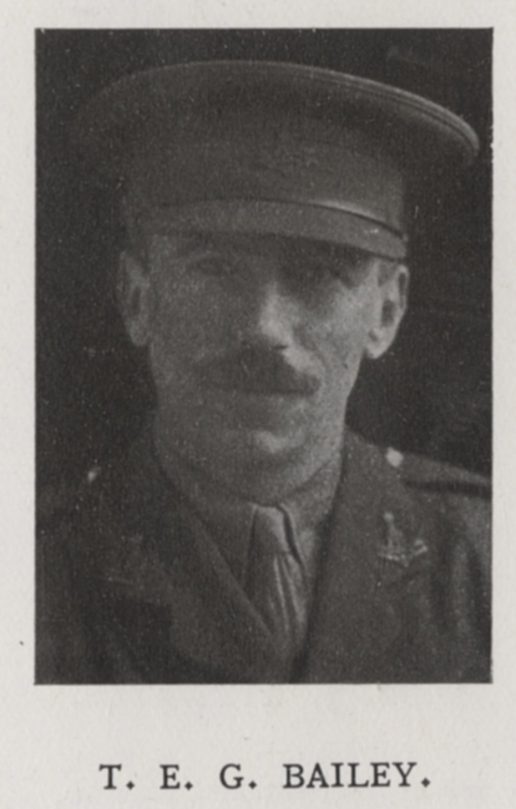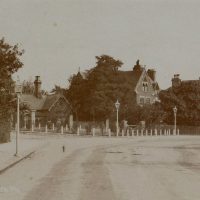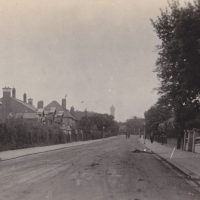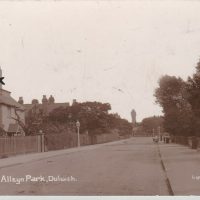Bailey, TEG
(1883 - 1919)

Key Facts
DATE OF BIRTH:
15th April 1883
YEARS ATTENDED THE COLLEGE:
1898 - 1902
HOME ADDRESS WHEN AT THE COLLEGE:
Fairlawn, 49 Alleyn Park, West Dulwich
REGIMENT
11th Battalion, Yorkshire Regiment
FINAL RANK:
Captain
DATE OF DEATH:
2nd April 1919
AGE AT DEATH:
35
WHERE HE DIED (or was wounded)
Russia
LOCATION OF GRAVE OR MEMORIAL:
Archangel Allied Cemetery. M 1
Captain Tom Esmond Geoffrey Bailey
Tom was born on April 15th 1883, the fourth of six sons of medical doctor James Bailey and his wife, Louisa, of whom only he and his two younger brothers would attend the College. He was a successful rugby player whilst at Dulwich, playing in the 1st XV in his last two years, and being awarded the Challenge Cup as outstanding forward in his final year. After leaving he took up a science scholarship at Clare College, Cambridge, graduating in the summer of 1905. From Cambridge he went on to become a geologist, specialising in prospecting for rare minerals, a role which between 1906 and the early part of 1915, under various employers, took him to Nyasaland (present-day Malawi), Burma and Borneo. During this period he was also the co-author, with A.R. Andrews, of a paper on the Geology of Nyasaland, which was published in the Geological Society’s Quarterly Journal during 1910.
In early 1915 Tom returned to England to take part in the War, and was given a Commission in the Yorkshire Regiment, with whom he went to France in November the same year. He was made a Captain in May 1916 and spent the following nine months solidly engaged on the front line, including serving during the early part of the Somme, before being severely wounded at Cherisy on 12th April 1917. After nearly a year spent recovering he returned to the front in March 1918 only to be back home again within weeks having had his Battalion almost wiped out in the German Offensive; after spending several months training up new recruits back in England the 6th Battalion, Yorkshire Regiment, was sent to Northern Russia to fight the Bolsheviks in October. On 22nd March 1919 Tom was awarded the Military Cross for his role in leading his men in the assault on Bolshe-Ozerki; however, he was killed on the 2nd April, before he had found out about this award. His younger brother Philip, a fellow OA, also fell in action.


